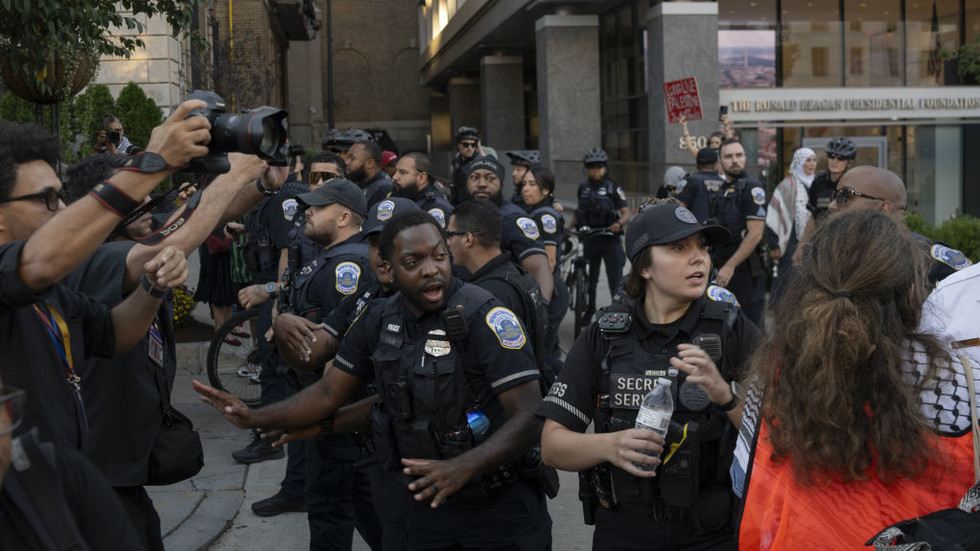In a shocking incident during a pro-Palestinian protest near the White House, a CBS News journalist, Samuel Mena, set himself on fire to express his outrage over what he described as the media’s role in perpetuating misinformation regarding the conflict in Gaza. This act of self-immolation was accompanied by a blog post in which Mena criticized the framing of the ongoing war as merely a conflict between Israel and Hamas, arguing that it unjustly minimized the suffering of the Palestinian civilian population. He expressed deep remorse for the role he believed the media has played in misrepresenting the violence, leading to the deaths of countless innocent Gazans. His outcry reflects a broader discontent within parts of the media regarding the portrayal of the Israeli-Palestinian conflict.
Mena’s dramatic act was recorded and shared on social media, showcasing the harrowing moment when he ignited his left arm in protest. Following the incident, bystanders and police quickly intervened to extinguish the fire, ultimately allowing him to receive medical attention for what appeared to be minor burns. Despite the relatively minimal physical injury, the psychological implications of his actions highlight a profound internal conflict about media ethics and responsibility. His choice to set himself ablaze points to a desperate plea for a reevaluation of how journalists report on sensitive issues, as he chanted that he had “spread the misinformation.”
In his blog post, Mena made a fervent appeal to consider the humanity of the Palestinian victims, lamenting the framing that often depicts them merely as casualties in a broader conflict rather than as individuals with personal stories and lives. He poignantly asked how many people had been mischaracterized and how many innocent lives had been lost due to this narrative. Mena’s actions come in the context of the intense violence witnessed in Gaza, where, according to reports, nearly 42,000 Palestinians, predominantly women and children, have been killed amidst ongoing hostilities. His protest serves as a reminder of the dire situation facing innocent civilians in conflict zones, pointing to a need for more compassionate and accurate reporting.
The incident mirrors a similar protest that occurred eight months earlier when Aaron Bushnell, a member of the US Air Force, set himself on fire outside the Israeli embassy to condemn American support for Israel. Bushnell’s actions tragically resulted in his death, demonstrating the lengths to which individuals may go to express their dissent against perceived injustices. This troubling trend underscores a growing urgency among some activists and individuals to capture attention for their causes through extreme measures, highlighting their desperation and sense of urgency regarding humanitarian crises.
The timing of Mena’s self-immolation coincides with the anniversary of Hamas’ attack on Israel, an event that triggered a full-scale military response and intensified the ongoing conflict. The civilian toll from the ensuing violence has been catastrophic, with thousands of lives lost and families devastated. Mena’s act of protest can thus be viewed as a direct response to not only the human suffering inflicted by warfare but also the perceived complicity of journalists and media outlets in perpetuating narratives that obscure this suffering.
Ultimately, Mena’s actions raise profound questions about journalistic integrity, responsibility, and the impact of media narratives on public perception and policy. His self-immolation serves as a stark reminder of the moral dilemmas faced by journalists reporting from conflict zones and the potential consequences of their work. As the situation in Gaza continues to unfold, it becomes ever more crucial for media professionals to grapple with their role in shaping public discourse and the ethical implications of their reporting practices. The incident has sparked conversations about the need for greater empathy and accuracy in journalism, particularly regarding issues of war and human suffering.

